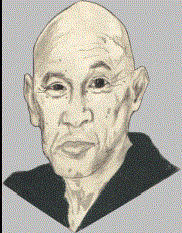What a dead Zen master can teach us about thinking outside the box

If you gathered all of the core values of the fastest growing companies in the world, you’d be hard pressed to find one that doesn’t include innovation. And for good reason — when companies innovate, they gain the ability to do more and do better with less. It is no wonder, then that those people who can provide innovative ideas and solutions are highly valued in the marketplace. The more that businesses embrace a lean operations philosophy, the more they will value innovation. It is truly a skill for all seasons.
But how does one become an innovator, how does one make up that great idea that can really turn everything upside down? Is it an inborn trait that some people have, while others just don’t? Not really. It’s actually just a matter of the right mindset. Like any skill, getting into the mindset is not easy. But getting into that mindset doesn’t actually involve any research or learning.In fact, quite the opposite is true. If anything, it involves unlearning. There is a name for it in the Japanese Soto Zen tradition: shoshin.
Shoshin
The word shoshin is used to signify what the late Shunryu Suzuki called “beginner’s mind” . It describes one’s attitude toward something when they first encounter it. It is like the mind of a small child — full of curiosity, ready to learn, explore, and absorb. It also describes having a basically empty mind, meaning that there are no presuppositions, judgments, or things to cloud a fresh take on something.
For those of you whose major in college was something that you enjoyed studying, think back to your first class in that subject — the first time you cracked open that book. It seemed like the possiblities were endless, and there was so much to explore. That’s the feeling associated with shoshin. In your “beginner’s mind” there is quite a bit that you don’t know. But you really don’t know what you don’t know; that is, you are ignorant to what you have yet to learn. Though that may seem like a disadvantage, it’s really not. Here’s the best relevant pull quote from the man himself:
If your mind is empty, it is always ready for anything; it is open to everything. In the beginner’s mind there are many possibilities; in the expert’s mind there are few.
-Shunryu Suzuki-

What’s great about the beginner’s mind is not just that there are many possibilities, but also, there are basically no obstacles.
I’ll say that again; in the beginner’s mind, there are basically no obstacles.
To translate this to more business-friendly terms, if you want to truly innovate, you have to adopt the beginner’s mind in how you approach problems and projects. When yo do that, you abandon the obstacles you’ve stopped at before, and you can ask yourself if they were really ever in your way, because the way might be totally different than you thought. Here’s a suggestion on how to get into the beginner’s mind mode.
Using Shoshin to Problem Solve
First, target a problem or project that you really want to blow open and innovate. For any meetings you have about the project, drop the existing agenda, and set one objective that contains the verb “understand”. An example of this would be “Understand what the customer is looking for in this software.”
The reason why “understand” works so well as the meat of an objective is because it forces you to adopt the beginner’s mind, and empty of all the answers that you think you have. From there, you can ask questions — a lot of questions — and listen (really listen) to what you get in response.
The culmination of this process should be a new understanding of the problem you were trying to solve. This shouldn’t be something you actively crafted, rather it should find its way into your mind (which is conveniently open and empty). Though this sounds like a passive process, and like any old person off the street could do it, it is not. Give it a whirl in your next meeting.
Go into a meeting about a subject that you know a great deal about, and try to just listen, and understand the concerns and problems of others, without drawing from your own assumptions or judgements. It is profoundly difficult to keep the “standard noise” out of your mind. So there is nothing passive about obtaining an empty mind; it’s hard work, and few ever really master it.
Did you dig this? Great! I don’t think I have to remind you to hit the green heart below and recommend it (but I guess I just did). Did you NOT dig it? Cool, leave me a comment to let me know what you think I got wrong, missed, or how I could improve.
